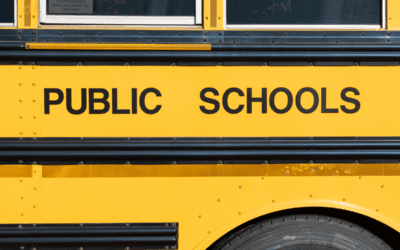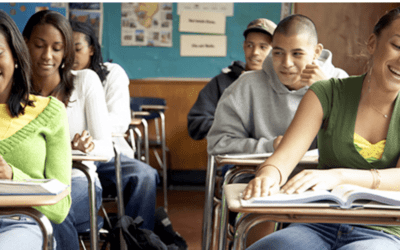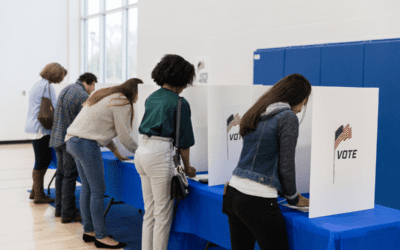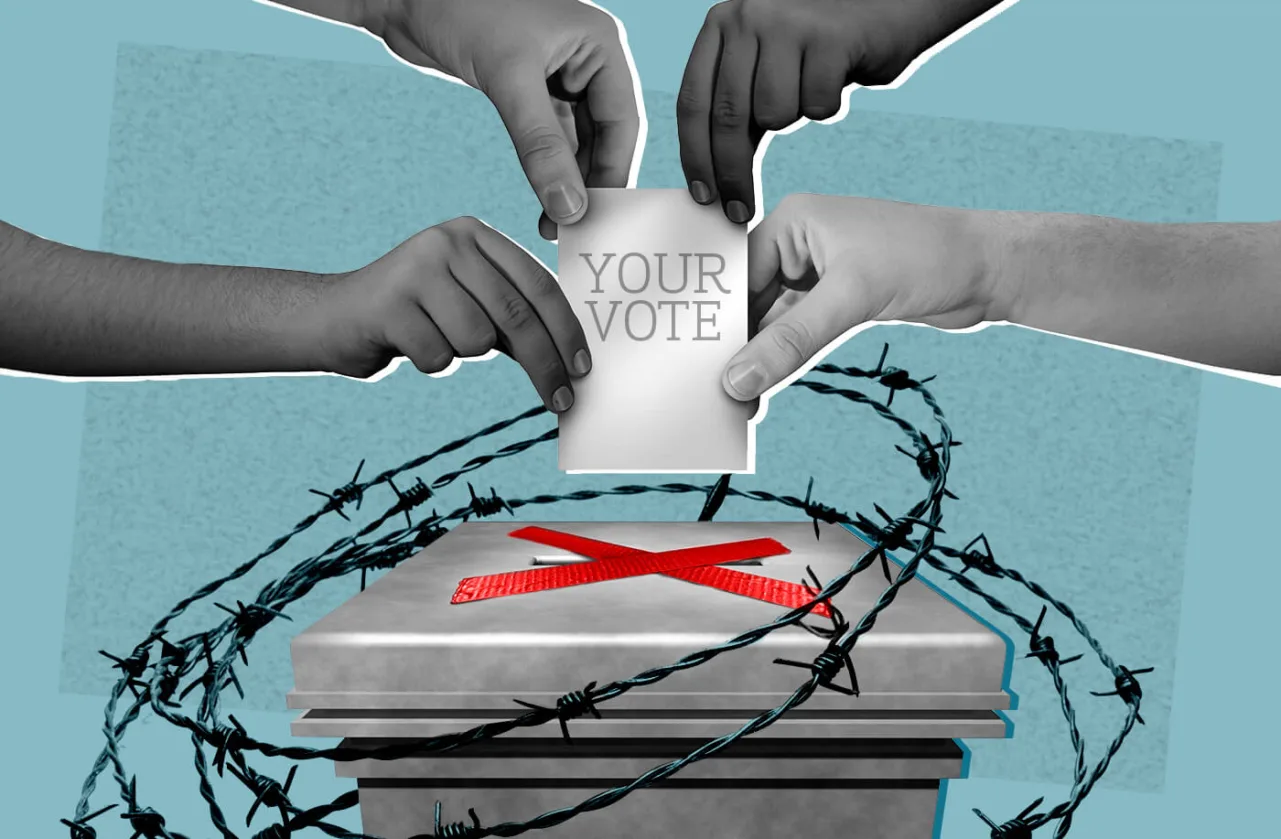
#image_title
Voting-rights advocates say almost a dozen Republican-authored bills in the Wisconsin Legislature would restrict or complicate ballot access.
The Rev. Greg Lewis has spent a decade mobilizing Black voters in Milwaukee to fight voter suppression and increase turnout, working to counter the lasting effects of the historic disenfranchisement of Black people through now-defunct methods like literacy tests.
But with the introduction of a series of Republican-authored bills in the Wisconsin Legislature that aim to change state voting laws, Lewis said he is reminded that disenfranchisement and suppression are not relics of the past but a very real threat to voters today.
“Today, I want to make sure we understand that the attack is still so very fervent,” said Lewis, who leads Souls to the Polls Milwaukee. “We have to fight back. We have to, and we need to let people know what’s going on so they understand the fight is significant.”
Lewis was one of several voting-rights advocates who spoke Thursday at a briefing held by Law Forward, a progressive legal group based in Madison. The briefing coincided with Law Forward’s release of an analysis of 19 proposed election-related bills that are at various stages of approval within the state Legislature. Nine of the bills would have negative impacts on voters, and two others would have mixed effects, Law Forward found.
“If you love democracy, you do not do this,” said Debra Cronmiller, executive director of the League of Women Voters of Wisconsin.
EARLIER: Helping Wisconsin Voters Would Be Harder—or Even a Criminal Act—in Some Republican Proposals
The analysis found the “Legislature seems disproportionately focused on restricting and complicating absentee voting.” Broadly, the bills would create extra hurdles for absentee voting—and create felony penalties for violating the new procedures—add new restrictions to indefinitely confined voting, and greatly restrict voters’ options for turning in absentee ballots.
“Right now, we’re seeing legislatures [across the country] meddling in election administration and really politicizing the voting and election administration process,” said Mel Barnes, staff counsel with Law Forward.
As of March 24, legislators had introduced 361 bills to restrict voting in 47 states, according to a tally from New York University’s Brennan Center for Justice. The lawmakers are generally relying upon and advancing the false narrative of a stolen or “irregularity”-filled election to push the bills through.
Legislators in Georgia and Florida rammed voting restrictions through in the wake of the election, and Texas state representatives stayed up past midnight to advance their own bill Friday morning. But any restrictive voting bill in Wisconsin is almost certain to face a veto from Democratic Gov. Tony Evers.
State Sen. Steve Nass (R-Whitewater) on Wednesday called for lawmakers to quickly pass the bills in Wisconsin.
“No more delays and no more excuses,” Nass said in a statement that decried “unacceptable stalling” in getting the bills to a floor vote.
Sen. Kathy Bernier (R-Chippewa Falls), the chair of the Senate’s election committee, shot back in a statement of her own: “Election law is complicated and getting it right takes time. Any perceived delays are due to crafting good policy. If that were something career politician Steve Nass ever attempted to do, he’d understand that.”
Bernier, a former county clerk, told WKOW’s Capital City Sunday in March some of the proposals “give me pause.”
Not every bill introduced in Wisconsin would have adverse effects on voters, Law Forward said in its report. Eight of the 19 total election-related bills in Wisconsin make either positive or neutral changes, the firm said, highlighting one such bill that would require the Wisconsin Elections Commission to post meeting minutes online within 24 hours of each meeting in an effort to increase transparency.
But as it stands, the majority of the bills stand to restrict voting rights, Law Forward found.
Sen. Duey Stroebel (R-Saukville), who authored a number of the restrictive proposals—such as ones that restrict voting drop boxes, add extra steps for indefinitely confined voters, and criminalize common methods of helping homebound or disabled voters—in March claimed in a statement to UpNorthNews the bills are intended to increase the public’s trust in elections.
Stroebel cited a July 2020 Reuters/Ipsos poll that found a deep district among Americans of the nation’s electoral system stemming from foreign meddling in US elections, voter suppression, and Republicans’ baseless claims of widespread fraud in mail-in ballots.

Opinion: Many to thank in fair maps victory for Wisconsinites
On February 19, 2024, Governor Tony Evers signed into law new and fair state legislative maps, bringing hope for an end to over a decade of...
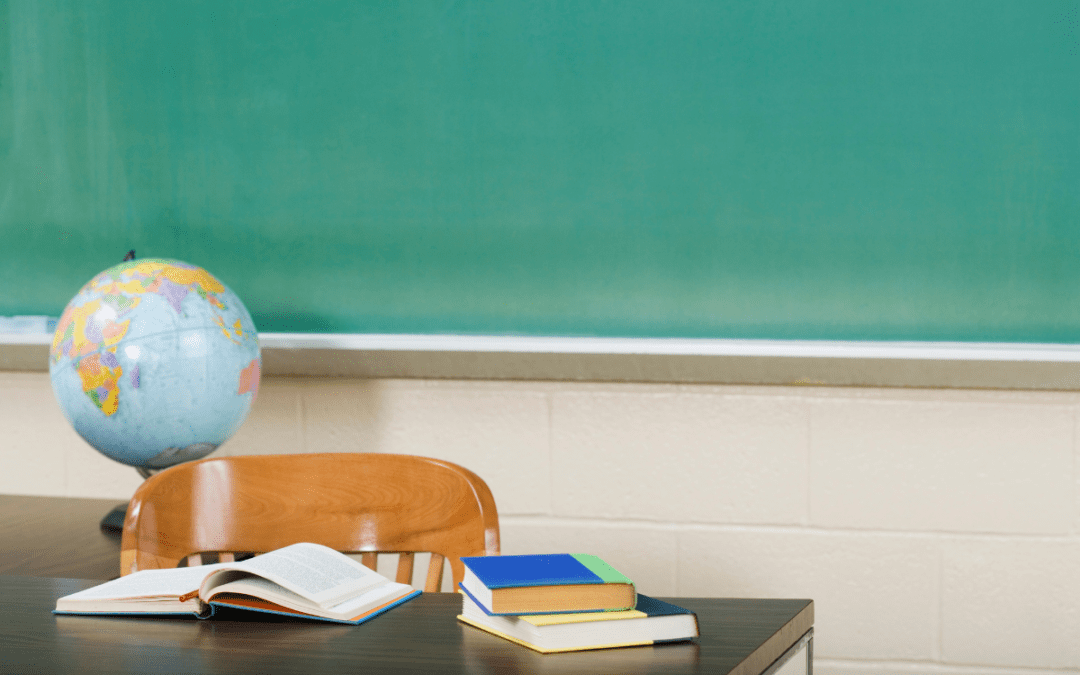
Opinion: Empowering educators: A call for negotiation rights in Wisconsin
This week marks “Public Schools Week,” highlighting the dedication of teachers, paras, custodians, secretaries and others who collaborate with...

Op-ed: Trump’s journey from hosting The Apprentice to being the biggest loser
Leading up to the 2016 election, Donald Trump crafted an image of himself as a successful businessman and a winner. But in reality, Trump has a long...

Not just abortion: IVF ruling next phase in the right’s war on reproductive freedom
Nearly two years after the US Supreme Court overturned Roe v. Wade, another court is using that ruling to go after one of the anti-abortion right’s...


